- Home
- Frederick Douglass
My Bondage and My Freedom (Penguin Classics) Page 6
My Bondage and My Freedom (Penguin Classics) Read online
Page 6
———. Narrative of the Life of Frederick Douglass, An American Slave, Written by Himself. Edited by David W. Blight. Originally published 1845. Boston: Bedford Books of St. Martin’s Press, 1993.
———. Narrative of the Life of Frederick Douglass, An American Slave, Written by Himself. Edited by Benjamin Quarles. Originally published 1845. Cambridge: Belknap Press of Harvard University Press, 1960.
Ernest, John. “Introduction: Rereading the Story of Slavery.” In Shadowing Slavery: Five African American Autobiographical Narratives , edited by Ernest, ix-li. Acton, Mass.: Copley Publishing Group, 2002.
———. Resistance and Reformation in Nineteenth-Century African-American Literature: Brown, Wilson, Jacobs, Delany, Douglass, and Harper. Jackson: University Press of Mississippi, 1995.
Fisch, Audrey. American Slaves in Victorian England: Abolitionist Politics in Popular Literature and Culture. Cambridge: Cambridge University Press, 2000.
Flora, Joseph M., and Lucinda H. MacKethan, eds. The Companion to Southern Literature: Themes, Genres, Places, People, Movements, and Motifs. Baton Rouge: Louisiana State University Press, 2002.
Foner, Philip S., ed. The Life and Writings of Frederick Douglass. 5 vols. New York: International Publishers, 1950-1975.
Foster, Frances Smith. Witnessing Slavery: The Development of Antebellum-Slave Narratives. Westport, Conn.: Greenwood Press, 1979.
Gates, Henry Louis, Jr., and William L. Andrews, eds. Pioneers of the Black Atlantic: Five Slave Narratives from the Enlightenment, 1772-1815. Washington: Civitas, 1998.
Huggins, Nathan Irvin. Slave and Citizen: The Life of Frederick Douglass. Boston: Little, Brown, 1988.
Lawson, Bill E., and Frank M. Kirkland, eds. Frederick Douglass: A Critical Reader. Malden, Mass.: Blackwell Publishers, 1999.
Levine, Robert S. Martin Delany, Frederick Douglass, and the Politics of Representative Identity. Chapel Hill: University of North Carolina Press, 1997.
McFeely, William S. Frederick Douglass. New York: W. W. Norton, 1991.
Martin, Waldo E., Jr. “Frederick Douglass: Humanist as Race Leader.” In Black Leaders of the Nineteenth Century, edited by Leon Litwack and August Meier, 59-84. Urbana: University of Illinois Press, 1988.
———. The Mind of Frederick Douglass. Chapel Hill: University of North Carolina Press, 1984.
Nichols, Charles H. Many Thousand Gone: The Ex-Slaves’ Account of Their Bondage and Freedom. Originally published 1963. Bloomington: Indiana University Press, 1969.
Preston, Dickson J. Young Frederick Douglass: The Maryland Years. Baltimore: Johns Hopkins University Press, 1980.
Quarles, Benjamin. Frederick Douglass. Washington: Associated Publishers, 1948.
Rael, Patrick. Black Identity and Black Protest in the Antebellum North. Chapel Hill: University of North Carolina Press, 2002.
Rice, Alan J., and Martin Crawford, eds. Liberating Sojourn: Frederick Douglass and Transatlantic Reform. Athens: University of Georgia Press, 1999.
Starling, Marion Wilson. The Slave Narrative. Originally published 1981. Washington: Howard University Press, 1988.
Stepto, Robert B. From behind the Veil: A Study of Afro-American Narrative. Urbana: University of Illinois Press, 1979.
Sundquist, Eric J. To Wake the Nations: Race in the Making of American Literature. Cambridge, Mass.: Belknap Press of Harvard University Press, 1993.
———, ed. Frederick Douglass: New Literary and Historical Essays. Cambridge, England: Cambridge University Press, 1990.
Walker, Peter F. Moral Choices: Memory, Desire, and Imagination in Nineteenth-Century American Abolition. Baton Rouge: Louisiana State University Press, 1978.
Acknowledgments
My graduate research assistants at the Department of History, North Carolina State University, Javan Frazier, Stephen A. Ross, and Sharon Baggett, provided valuable assistance in the researching and writing of this introduction. Maria Diedrich of the University of Münster, Germany, introduced me to the German response to Douglass and to Ottilie Assing’s contribution to Douglass’s My Bondage and My Freedom. Randall M. Miller, Jeffrey J. Crow, and David W. Blight read an early draft and provided invaluable criticism. I also wish to thank my editor at Penguin, Michael S. Millman, for his interest in my work and for his encouragement, support, and patience. Series editor John Seelye generously tolerated my idiosyncrasies. A College of Humanities and Social Sciences Summer Stipend Award, North Carolina State University, provided financial support.
MY BONDAGE AND MY FREEDOM
Frederick Douglass
Editor’s Preface.
If the volume now presented to the public were a mere work of ART, the history of its misfortune might be written in two very simple words—TOO LATE. The nature and character of slavery have been subjects of an almost endless variety of artistic representation ; and after the brilliant achievements in that field, and while those achievements are yet fresh in the memory of the million, he who would add another to the legion, must possess the charm of transcendent exellence, or apologize for something worse than rashness. The reader is, therefore, assured, with all due promptitude, that his attention is not invited to a work of ART, but to a work of FACTS—Facts, terrible and almost incredible, it may be—yet FACTS, nevertheless.
I am authorized to say that there is not a fictitious name nor place in the whole volume ; but that names and places are literally given, and that every transaction therein described actually transpired.
Perhaps the best Preface to this volume is furnished in the following letter of Mr. Douglass, written in answer to my urgent solicitation for such a work:
ROCHESTER, N. Y. July 2, 1855.
DEAR FRIEND : I have long entertained, as you very well know, a somewhat positive repugnance to writing or speaking anything for the public, which could, with any degree of plausibility, make me liable to the imputation of seeking personal notoriety, for its own sake. Entertaining that feeling very sincerely, and permitting its control, perhaps, quite unreasonably, I have often refused to narrate my personal experience in public anti-slavery meetings, and in sympathizing circles, when urged to do so by friends, with whose views and wishes, ordinarily, it were a pleasure to comply. In my letters and speeches, I have generally aimed to discuss the question of Slavery in the light of fundamental principles, and upon facts, notorious and open to all ; making, I trust, no more of the fact of my own former enslavement, than circumstances seemed absolutely to require. I have never placed my opposition to slavery on a basis so narrow as my own enslavement, but rather upon the indestructible and unchangeable laws of human nature, every one of which is perpetually and flagrantly violated by the slave system. I have also felt that it was best for those having histories worth the writing—or supposed to be so—to commit such work to hands other than their own. To write of one’s self, in such a manner as not to incur the imputation of weakness, vanity, and egotism, is a work within the ability of but few ; and I have little reason to believe that I belong to that fortunate few.
These considerations caused me to hesitate, when first you kindly urged me to prepare for publication a full account of my life as a slave, and my life as a freeman.
Nevertheless, I see, with you, many reasons for regarding my autobiography as exceptional in its character, and as being, in some sense, naturally beyond the reach of those reproaches which honorable and sensitive minds dislike to incur. It is not to illustrate any heroic achievements of a man, but to vindicate a just and beneficent principle, in its application to the whole human family, by letting in the light of truth upon a system, esteemed by some as a blessing, and by others as a curse and a crime. I agree with you, that this system is now at the bar of public opinion—not only of this country, but of the whole civilized world—for judgment. Its friends have made for it the usual plea—“not guilty ;” the case must, therefore, proceed. Any facts, either from slaves, slaveholders, or by-standers, calculated to enlighten the public mind, by revealing the true nature, character, and tende
ncy of the slave system, are in order, and can scarcely be innocently withheld.
I see, too, that there are special reasons why I should write my own biography, in preference to employing another to do it. Not only is slavery on trial, but unfortunately, the enslaved people are also on trial. It is alleged, that they are, naturally, inferior ; that they are so low in the scale of humanity, and so utterly stupid, that they are unconscious of their wrongs, and do not apprehend their rights. Looking, then, at your request, from this standpoint, and wishing everything of which you think me capable to go to the benefit of my afflicted people, I part with my doubts and hesitation, and proceed to furnish you the desired manuscript ; hoping that you may be able to make such arrangements for its publication as shall be best adapted to accomplish that good which you so enthusiastically anticipate.
FREDERICK DOUGLASS.
There was little necessity for doubt and hesitation on the part of Mr. Douglass, as to the propriety of his giving to the world a full account of himself. A man who was born and brought up in slavery, a living witness of its horrors ; who often himself experienced its cruelties ; and who, despite the depressing influences surrounding his birth, youth and manhood, has risen, from a dark and almost absolute obscurity, to the distinguished position which he now occupies, might very well assume the existence of a commendable curiosity, on the part of the public, to know the facts of his remarkable history.
EDITOR.
Introduction.1
When a man raises himself from the lowest condition in society to the highest, mankind pay him the tribute of their admiration ; when he accomplishes this elevation by native energy, guided by prudence and wisdom, their admiration is increased ; but when his course, onward and upward, excellent in itself, furthermore proves a possible, what had hitherto been regarded as an impossible, reform, then he becomes a burning and a shining light, on which the aged may look with gladness, the young with hope, and the down-trodden, as a representative of what they may themselves become. To such a man, dear reader, it is my privilege to introduce you.
The life of Frederick Douglass, recorded in the pages which follow, is not merely an example of self-elevation under the most adverse circumstances ; it is, moreover, a noble vindication of the highest aims of the American anti-slavery movement. The real object of that movement is not only to disenthrall, it is, also, to bestow upon the negro the exercise of all those rights, from the possession of which he has been so long debarred.
But this full recognition of the colored man to the right, and the entire admission of the same to the full privileges, political, religious and social, of manhood, requires powerful effort on the part of the enthralled, as well as on the part of those who would disenthrall them. The people at large must feel the conviction, as well as admit the abstract logic, of human equality ; the negro, for the first time in the world’s history, brought in full contact with high civilization, must prove his title to all that is demanded for him ; in the teeth of unequal chances, he must prove himself equal to the mass of those who oppress him—therefore, absolutely superior to his apparent fate, and to their relative ability. And it is most cheering to the friends of freedom, to-day, that evidence of this equality is rapidly accumulating, not from the ranks of the half-freed colored people of the free states, but from the very depths of slavery itself ; the indestructible equality of man to man is demonstrated by the ease with which black men, scarce one remove from barbarism—if slavery can be honored with such a distinction—vault into the high places of the most advanced and painfully acquired civilization. Ward and Garnett, Wells Brown and Pennington, Loguen and Douglass, are banners on the outer wall, under which abolition is fighting its most successful battles, because they are living exemplars of the practicability of the most radical abolitionism ; for, they were all of them born to the doom of slavery, some of them remained slaves until adult age, yet they all have not only won equality to their white fellow citizens, in civil, religious, political and social rank, but they have also illustrated and adorned our common country by their genius, learning and eloquence.
The characteristics whereby Mr. Douglass has won first rank among these remarkable men, and is still rising toward highest rank among living Americans, are abundantly laid bare in the book before us. Like the autobiography of Hugh Miller, it carries us so far back into early childhood, as to throw light upon the question, “when positive and persistent memory begins in the human being.” And, like Hugh Miller, he must have been a shy old fashioned child, occasionally oppressed by what he could not well account for, peering and poking about among the layers of right and wrong, of tyrant and thrall, and the wonderfulness of that hopeless tide of things which brought power to one race, and unrequited toil to another, until, finally, he stumbled upon his “first-found Ammonite,” hidden away down in the depths of his own nature, and which revealed to him the fact that liberty and right, for all men, were anterior to slavery and wrong. When his knowledge of the world was bounded by the visible horizon on Col. Lloyd’s plantation, and while every thing around him bore a fixed, iron stamp, as if it had always been so, this was, for one so young, a notable discovery.
To his uncommon memory, then, we must add a keen and accurate insight into men and things ; an original breadth of common sense which enabled him to see, and weigh, and compare whatever passed before him, and which kindled a desire to search out and define their relations to other things not so patent, but which never succumbed to the marvelous nor the supernatural ; a sacred thirst for liberty and for learning, first as a means of attaining liberty, then as an end in itself most desirable ; a will ; an unfaltering energy and determination to obtain what his soul pronounced desirable ; a majestic self-hood ; determined courage ; a deep and agonizing sympathy with his embruted, crushed and bleeding fellow slaves, and an extraordinary depth of passion, together with that rare alliance between passion and intellect, which enables the former, when deeply roused, to excite, develop and sustain the latter.
With these original gifts in view, let us look at his schooling ; the fearful discipline through which it pleased God to prepare him for the high calling on which he has since entered—the advocacy of emancipation by the people who are not slaves. And for this special mission, his plantation education was better than any he could have acquired in any lettered school. What he needed, was facts and experiences, welded to acutely wrought up sympathies, and these he could not elsewhere have obtained, in a manner so peculiarly adapted to his nature. His physical being was well trained, also, running wild until advanced into boyhood ; hard work and light diet, thereafter, and a skill in handicraft in youth.
For his special mission, then, this was, considered in connection with his natural gifts, a good schooling ; and, for his special mission, he doubtless “left school” just at the proper moment. Had he remained longer in slavery—had he fretted under bonds until the ripening of manhood and its passions, until the drear agony of slave-wife and slave-children had been piled upon his already bitter experience—then, not only would his own history have had another termination, but the drama of American slavery would have been essentially varied ; for I cannot resist the belief, that the boy who learned to read and write as he did, who taught his fellow slaves these precious acquirements as he did, who plotted for their mutual escape as he did, would, when a man at bay, strike a blow which would make slavery reel and stagger. Furthermore, blows and insults he bore, at the moment, without resentment ; deep but suppressed emotion rendered him insensible to their sting ; but it was afterward, when the memory of them went seething through his brain, breeding a fiery indignation at his injured self-hood, that the resolve came to resist, and the time fixed when to resist, and the plot laid, how to resist ; and he always kept his self-pledged word. In what he undertook, in this line, he looked fate in the face, and had a cool, keen look at the relation of means to ends. Henry Bibb, to avoid chastisement, strewed his master’s bed with charmed leaves—and was whipped. Frederick Douglass quietly pocketed a
like fetiche, compared his muscles with those of Covey—and whipped him.
In the history of his life in bondage, we find, well developed, that inherent and continuous energy of character which will ever render him distinguished. What his hand found to do, he did with his might ; even while conscious that he was wronged out of his daily earnings, he worked, and worked hard. At his daily labor he went with a will ; with keen, well set eye, brawny chest, lithe figure, and fair sweep of arm, he would have been king among calkers, had that been his mission.
It must not be overlooked, in this glance at his education, that Mr. Douglass lacked one aid to which so many men of mark have been deeply indebted—he had neither a mother’s care, nor a mother’s culture, save that which slavery grudgingly meted out to him. Bitter nurse! may not even her features relax with human feeling, when she gazes at such offspring! How susceptible he was to the kindly influences of mother-culture, may be gathered from his own words, on page 45 : “It has been a life-long, standing grief to me, that I know so little of my mother, and that I was so early separated from her. The counsels of her love must have been beneficial to me. The side view of her face is imaged on my memory, and I take few steps in life, without feeling her presence ; but the image is mute, and I have no striking words of hers treasured up.”
From the depths of chattel slavery in Maryland, our author escaped into the caste-slavery of the north, in New Bedford, Massachusetts. Here he found oppression assuming another, and hardly less bitter, form ; of that very handicraft which the greed of slavery had taught him, his half-freedom denied him the exercise for an honest living ; he found himself one of a class—free colored men—whose position he has described in the following words :

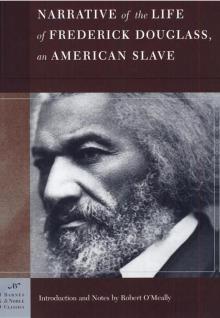 Narrative of the Life of Frederick Douglass: An American Slave
Narrative of the Life of Frederick Douglass: An American Slave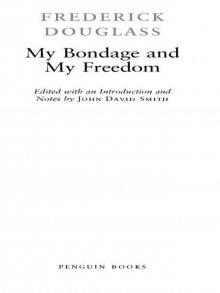 My Bondage and My Freedom
My Bondage and My Freedom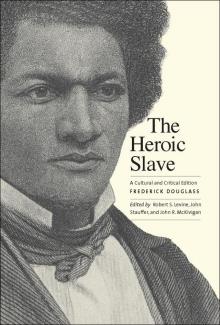 Two Slave Rebellions at Sea
Two Slave Rebellions at Sea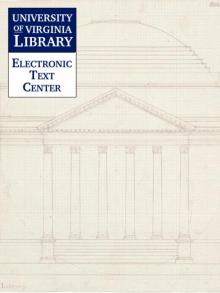 The Color Line in America
The Color Line in America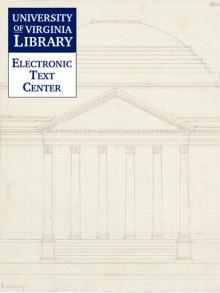 The Negro Exodus from the Gulf States
The Negro Exodus from the Gulf States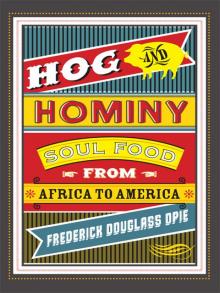 Hog and Hominy: Soul Food From Africa to America
Hog and Hominy: Soul Food From Africa to America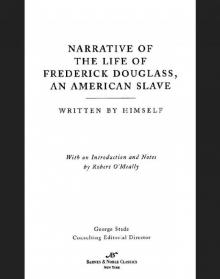 Narrative of the Life of Frederick Douglass
Narrative of the Life of Frederick Douglass![An Appeal to Congress for Impartial Suffrage [a machine-readable transcription] Read online](http://i1.bookreadfree.com/i/03/23/an_appeal_to_congress_for_impartial_suffrage_a_machine-readable_transcription_preview.jpg) An Appeal to Congress for Impartial Suffrage [a machine-readable transcription]
An Appeal to Congress for Impartial Suffrage [a machine-readable transcription]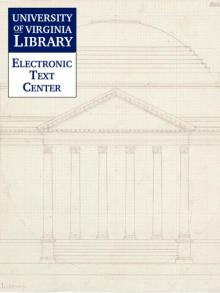 The Color Line
The Color Line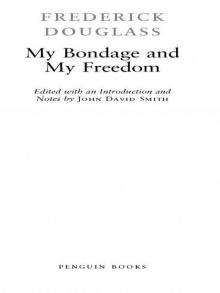 My Bondage and My Freedom (Penguin Classics)
My Bondage and My Freedom (Penguin Classics)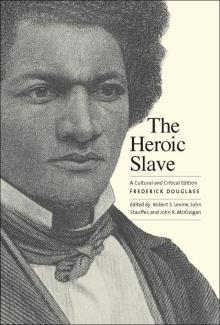 The Heroic Slave
The Heroic Slave